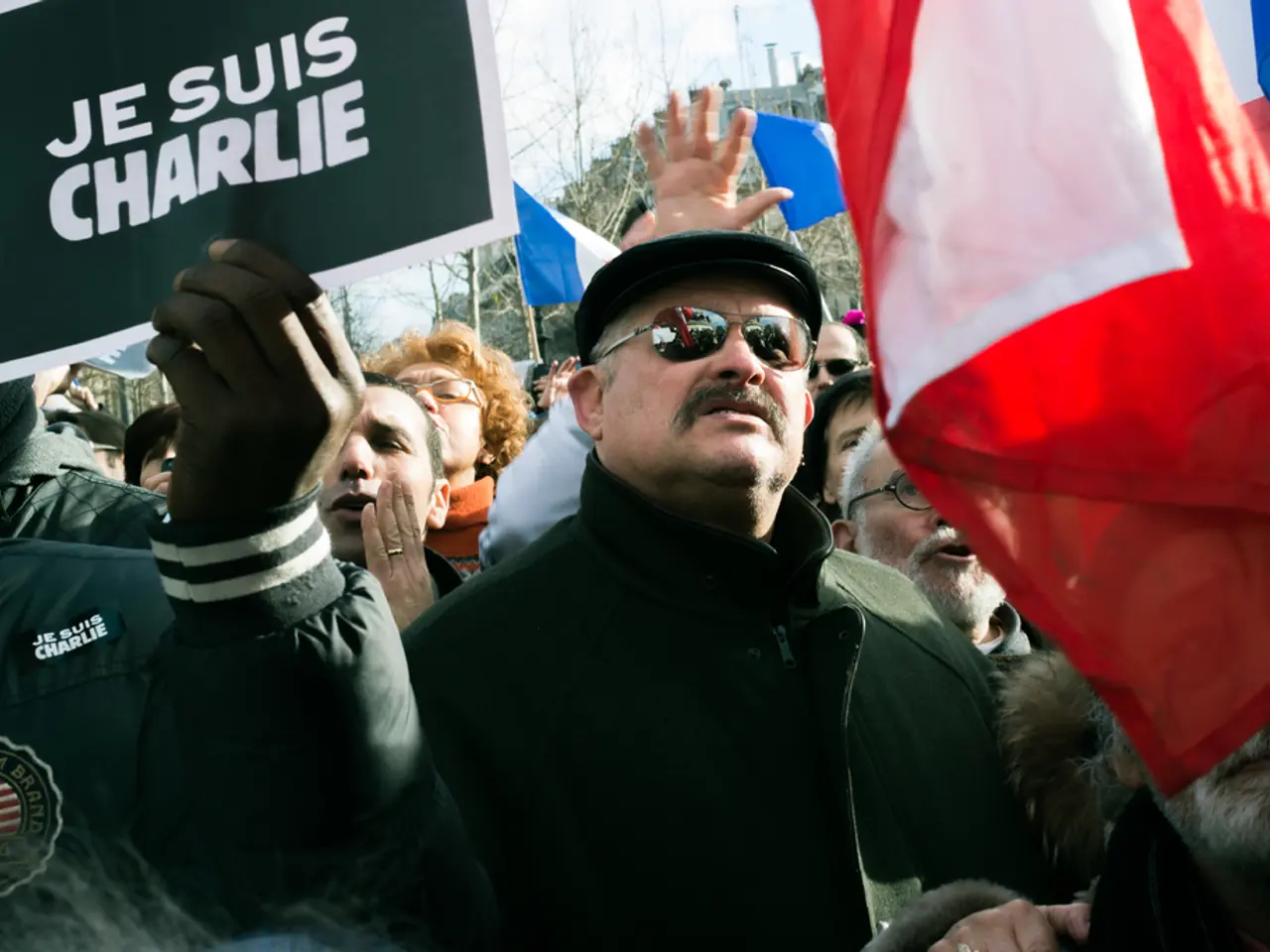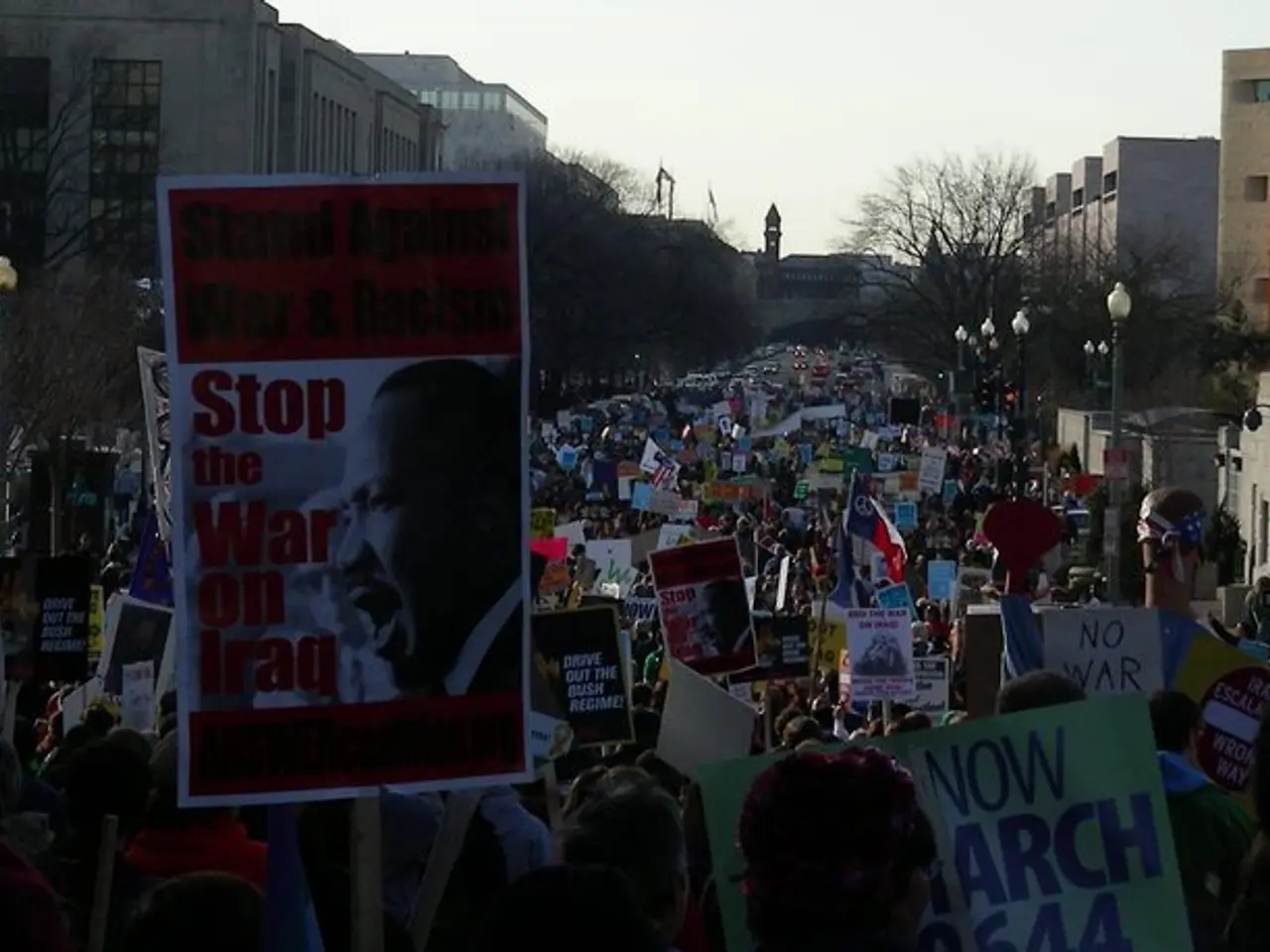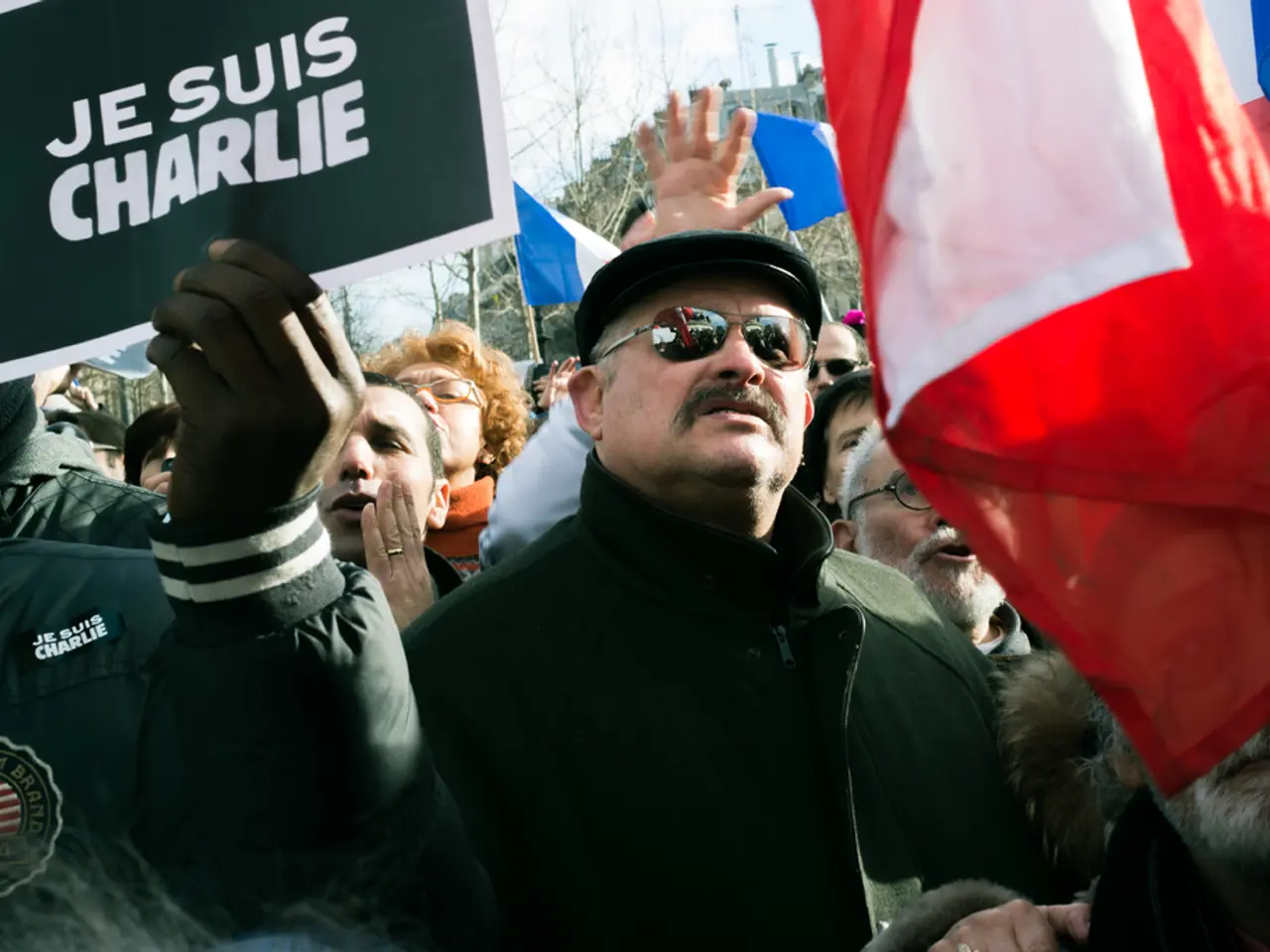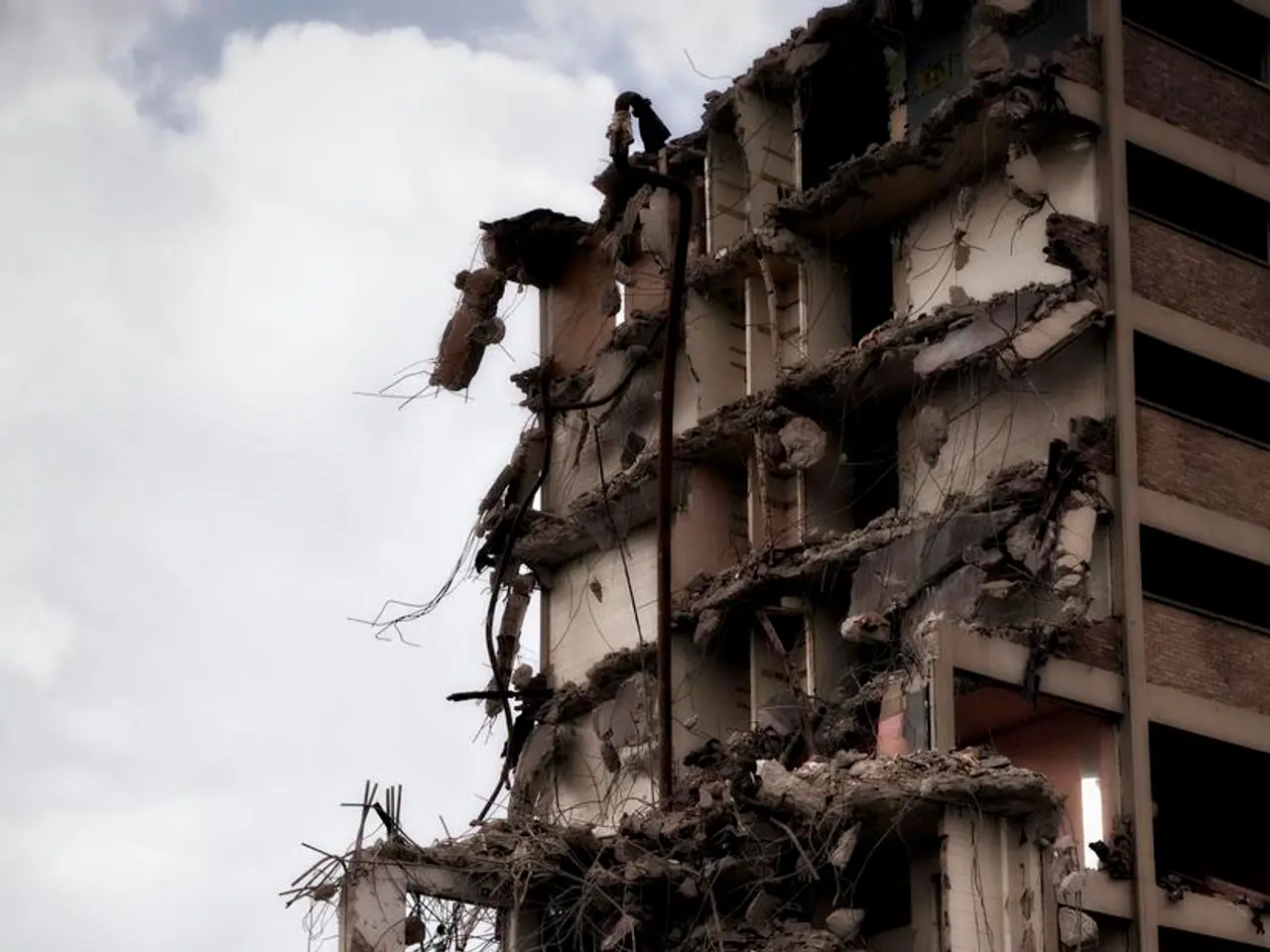Global scrutiny of Israel's Gaza development strategies
The international community is voicing strong concerns over Israel's plans to seize Gaza City, with the United Nations (UN) leading the charge. The UN Security Council has described the move as a dangerous escalation that risks another horrific chapter in the ongoing conflict.
According to projections, about 800,000 civilians could be displaced by October 7, 2025, with Israeli forces surrounding Gaza City for months. This potential military takeover has raised concerns about the humanitarian consequences, including escalating violence, displacement, and destruction, which humanitarian and human rights leaders say may amount to atrocity crimes.
The UN High Commissioner for Human Rights, Volker Türk, has explicitly stated that the military takeover would contravene international law. He refers to a ruling from the International Court of Justice requiring Israel to end occupation and respect Palestinian self-determination. Türk urged Israel to halt the military plan and instead enable an unfettered flow of humanitarian aid to civilians.
Some Israeli military sources reportedly opposed the plan internally, warning of the risks to both soldiers and civilians. They note parallels with other intense urban military operations like Fallujah and Mosul, which resulted in heavy casualties and devastation.
The partners, including Germany, Britain, Italy, New Zealand, and Australia, have rejected Israel's plans to seize the city of Gaza. The partners' proposal for a two-state solution does not specify any timeline or further details for its implementation.
The UN Secretary-General António Guterres has warned of a "dangerous escalation" due to the Israeli Security Cabinet's decision. The United Arab Emirates has called for de-escalating measures and warned of the spread of violence, tensions, and insecurity throughout the region. Qatar and the United Arab Emirates have also condemned Israel's plans, posing a danger to the humanitarian crisis in the Gaza Strip and undermining efforts to achieve a lasting ceasefire.
The European Union's Commission President Ursula von der Leyen and Council President António Costa have urged the Israeli government to reconsider its decision. Dutch Foreign Minister Caspar Veldkamp stated that "Netanyahu's government is losing Europe - completely."
In response, Chancellor Friedrich Merz (CDU) has announced a temporary halt on arms exports to Israel that could be used in the Gaza war. The international community—led by the UN—views Israel’s planned seizure of Gaza City with grave concern, emphasizing compliance with international humanitarian law, protection of civilians, and urgent humanitarian access to prevent severe further suffering.
The escalating concerns regarding Israel's plans to seize Gaza City encompass diverse aspects such as war-and-conflicts, politics, and general-news. The international community, including partners like Germany, Britain, Italy, New Zealand, Australia, the European Union, and the United Nations, have collectively denounced these plans and called for a halt, citing potential human rights violations.






